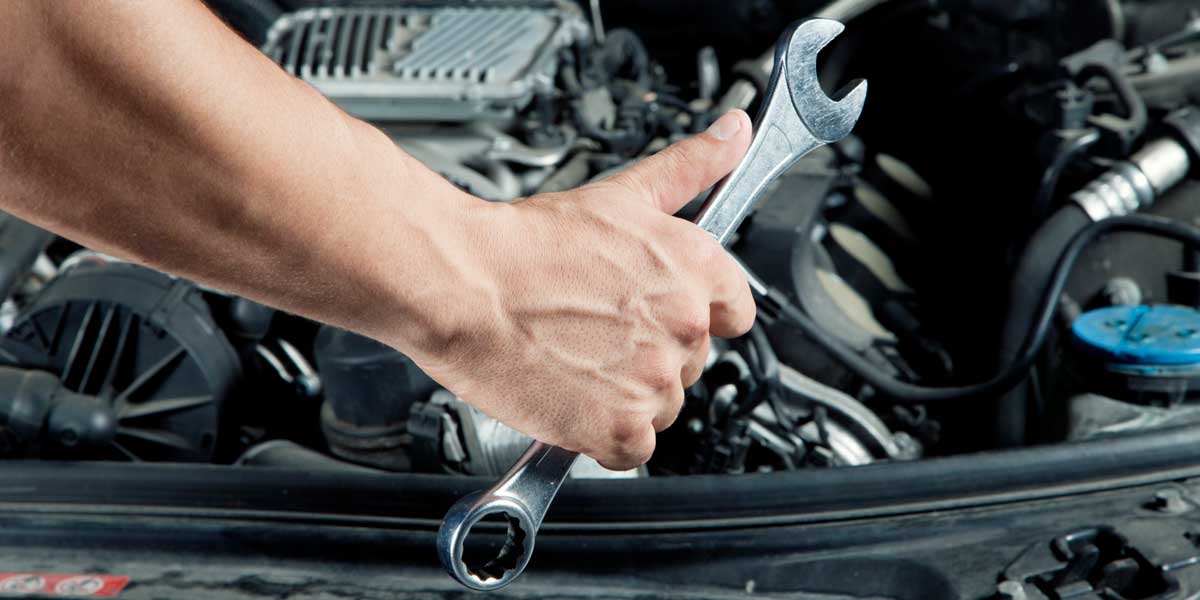All Categories
Featured
Responsible for integrating the rotation of the crankshaft and camshaft, the timing belt makes certain the engine's shutoffs close and open at the proper times during the combustion process. If the timing belt stops working, it can result in severe engine damages.
What Is a Timing Belt? The timing belt is a long, toothed rubber or composite belt that connects the crankshaft to the camshaft(s) in an interior burning engine. Its job is to maintain the engine's shutoffs and pistons in sync, making certain the engine runs effectively. The timing belt also regulates other crucial engine functions like the water pump and the power guiding pump, depending upon the lorry.
![]()
Without the appropriate timing, the engine's valves and pistons can clash, resulting in pricey and considerable damages. Changing the timing belt on schedule is one of the best means to ensure your engine operates at its best and protect against expensive fixings.
Why Timing Belt Substitute Issues. Stopping Catastrophic Engine Damage: The most significant risk of not replacing a worn timing belt is engine failure. Replacing the timing belt at the suggested intervals is the best means to stop such catastrophic damages, conserving you from the tension and high price of engine fixings or substitute.
![]()
Keeping Engine Effectiveness: A timing belt that remains in excellent problem makes certain that all engine components work in perfect harmony. If the timing belt is worn or extended, it can cause the engine to lose power, experience harsh idling, or struggle to start. By replacing the timing belt frequently, you can maintain your engine going for peak effectiveness, which assists maintain ideal fuel economic situation and performance.
Avoiding Unanticipated Break downs: A damaged timing belt can trigger your engine to stop abruptly, possibly leaving you stranded in the middle of a journey. By changing your timing belt promptly, you lessen the threat of abrupt malfunctions that might leave you in a unsafe or troublesome situation. Normal maintenance minimizes the opportunities of experiencing these kinds of disruptions, aiding you stay on the roadway much longer without worrying regarding your engine falling short.
Cost-Effective Maintenance: Timing belt substitute is a lot more economical than repairing or replacing an engine that's been damaged as a result of a timing belt failure. While the expense of replacing the timing belt might differ depending on your lorry and its place, it is much a lot more budget-friendly than the costs connected with major engine repair services or replacements. Replacing your timing belt at the suggested intervals can conserve you a considerable quantity of cash over the future by stopping damages to your engine.
When Should You Change Your Timing Belt? The timing belt does not last for life, and a lot of manufacturers suggest replacing it between 60,000 and 100,000 miles. Nonetheless, the exact timing relies on your car's make, version, and driving problems, so it's important to inspect your proprietor's manual for certain advice.
Indications that your timing belt may need focus consist of uncommon engine sounds (such as a piercing whining or ticking noise), problem starting the engine, or a reduction in engine performance. It's important to have the timing belt inspected by an expert auto mechanic. if you observe any of these indications.
![]()
Conclusion. The timing belt is a little but vital component of your engine, and normal replacement is key to preserving your automobile's performance and protecting against costly damages. By remaining on top of timing belt upkeep, you'll ensure your engine operates efficiently, avoid unforeseen break downs, and protect your car from significant repair work. Maintain an eye on your car's recommended timing belt substitute schedule, and constantly talk to a trusted technician to keep your engine running smoothly for years ahead.
What Is a Timing Belt? The timing belt is a long, toothed rubber or composite belt that connects the crankshaft to the camshaft(s) in an interior burning engine. Its job is to maintain the engine's shutoffs and pistons in sync, making certain the engine runs effectively. The timing belt also regulates other crucial engine functions like the water pump and the power guiding pump, depending upon the lorry.

Without the appropriate timing, the engine's valves and pistons can clash, resulting in pricey and considerable damages. Changing the timing belt on schedule is one of the best means to ensure your engine operates at its best and protect against expensive fixings.
Why Timing Belt Substitute Issues. Stopping Catastrophic Engine Damage: The most significant risk of not replacing a worn timing belt is engine failure. Replacing the timing belt at the suggested intervals is the best means to stop such catastrophic damages, conserving you from the tension and high price of engine fixings or substitute.

Keeping Engine Effectiveness: A timing belt that remains in excellent problem makes certain that all engine components work in perfect harmony. If the timing belt is worn or extended, it can cause the engine to lose power, experience harsh idling, or struggle to start. By replacing the timing belt frequently, you can maintain your engine going for peak effectiveness, which assists maintain ideal fuel economic situation and performance.
Avoiding Unanticipated Break downs: A damaged timing belt can trigger your engine to stop abruptly, possibly leaving you stranded in the middle of a journey. By changing your timing belt promptly, you lessen the threat of abrupt malfunctions that might leave you in a unsafe or troublesome situation. Normal maintenance minimizes the opportunities of experiencing these kinds of disruptions, aiding you stay on the roadway much longer without worrying regarding your engine falling short.
Cost-Effective Maintenance: Timing belt substitute is a lot more economical than repairing or replacing an engine that's been damaged as a result of a timing belt failure. While the expense of replacing the timing belt might differ depending on your lorry and its place, it is much a lot more budget-friendly than the costs connected with major engine repair services or replacements. Replacing your timing belt at the suggested intervals can conserve you a considerable quantity of cash over the future by stopping damages to your engine.
When Should You Change Your Timing Belt? The timing belt does not last for life, and a lot of manufacturers suggest replacing it between 60,000 and 100,000 miles. Nonetheless, the exact timing relies on your car's make, version, and driving problems, so it's important to inspect your proprietor's manual for certain advice.
Indications that your timing belt may need focus consist of uncommon engine sounds (such as a piercing whining or ticking noise), problem starting the engine, or a reduction in engine performance. It's important to have the timing belt inspected by an expert auto mechanic. if you observe any of these indications.

Conclusion. The timing belt is a little but vital component of your engine, and normal replacement is key to preserving your automobile's performance and protecting against costly damages. By remaining on top of timing belt upkeep, you'll ensure your engine operates efficiently, avoid unforeseen break downs, and protect your car from significant repair work. Maintain an eye on your car's recommended timing belt substitute schedule, and constantly talk to a trusted technician to keep your engine running smoothly for years ahead.
Latest Posts
Unlock WyHy Federal Credit Union – Key Advantages for Your Money Goals
Published May 24, 25
1 min read
Explore WyHy FCU – Top Benefits for Your Success
Published May 22, 25
1 min read
Shield and Improve Your Home with Weathercraft's Exterior siding Solutions
Published May 21, 25
1 min read
More
Latest Posts
Unlock WyHy Federal Credit Union – Key Advantages for Your Money Goals
Published May 24, 25
1 min read
Explore WyHy FCU – Top Benefits for Your Success
Published May 22, 25
1 min read
Shield and Improve Your Home with Weathercraft's Exterior siding Solutions
Published May 21, 25
1 min read